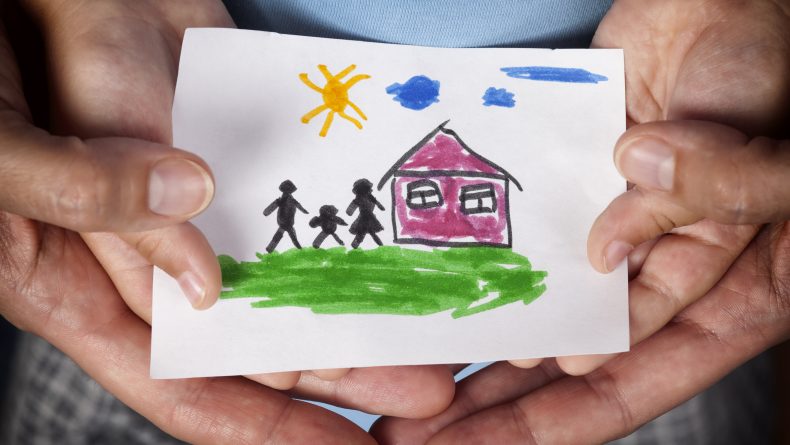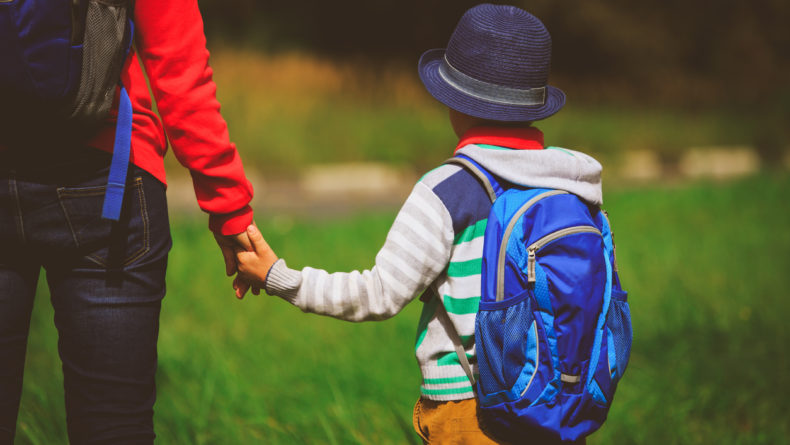What To Expect When You Have No Idea What To Expect: Tips From Adoptive Parents
Parents Who Have Walked That Path Share Their Stories
For pregnant women, there is ample information about the pre-birth process. Yet, although there are books available to help adoptive and foster parents, it’s still quite something to suddenly have children. Here’s what you can (and should) expect if you have no clue what’s coming.
Unlike biological parents, who have nine months to prepare, foster and adoptive parents may be placed with children with little advance warning. They may, as in my case, wait three years for a match, but still have no idea how long the visiting process will take and when the phone call will come informing them that they will suddenly become a family.
For this article, I surveyed parents of adopted/foster children to find out about their children’s backgrounds, issues and problems that came up after placement, length of adjustment for the children to their new situation, and advice parents would give to anyone thinking of taking this path of creating a family. Here’s what they had to share.
Be prepared for challenges
Five of the parents who responded to the questionnaire had one adopted/foster child, one family had two children, and the other three. Three families had been together for between three and five years and the remaining, over five years. Four of the families said that their children had been abandoned by their birth parents, two said that the children’s single mothers were not able to raise them, and one said that the child was given up because of having disabilities.
[A] perpetuated myth is that children will enter new families happy and grateful and will be on their best behavior forever.
Because of the influence of the media, children waiting to be adopted are often portrayed as desperate to belong to a family, joyously running out of the orphanage into the new parents’ arms. However, this does not bear out in reality. Only one parent said that their child had no issues upon first entering the family, likely because the child was a baby when adopted. However, three parents mentioned that their children came with learning disabilities. Another parent said that their child suffered from anxiety and depression, another from developmental disabilities, and the last with SPD (sensory processing disorder) and arthrogryposis (curved joints in multiple parts of the body). It is important for prospective adoptive/foster parents to realize that in more cases than not, the children they hope to care for will come with issues.
Adaptation takes time and it isn’t easy
Another perpetuated myth is that children will enter new families happy and grateful and will be on their best behavior forever. However, most families I surveyed reported adaptation to living with the family taking up to two years. One parent even said that their child “probably got less used to it as time went by.” Unsurprisingly, this same family also reported the most problems with their child including bed wetting, stealing, tantrums and running away. Except for the one family who had adopted a baby and reported no issues, other parents reported that during the adjustment, or “testing phase” their children lied, fought with family members or schoolmates, had nightmares or walked in their sleep, had sleeping issues and no understanding of a normal schedule, and had abandonment issues. This testing period, I can tell you from experience, is VERY challenging and, like pet monkeys biting, is an issue more of “when” than of “if.”
‘[We] didn’t expect changes overnight and needed an abundance of patience.’
But it isn’t impossible, either
However, parents can help their children adapt to the new situation. One parent surveyed said they did this by “just [trying] to treat her as our own child, including time spent with grandparents and cousins.” Another said that it was important to “make them feel loved while also expecting rules to be followed.” Yet another said, “A lot of prayers! Sticking to a routine, showing how things are done, and physical therapy, occupational therapy, and speech therapy.” One family reported slowly telling their child about their birth parents, a very important issue for adoptive parents.
Adaptation is slow to take place and patience is required. Said one parent, “[We] didn’t expect changes overnight and needed an abundance of patience. I didn’t expect him to suddenly go to sleep at 9 p.m. every night after staying up for years until 4 or 5 a.m., but slowly pushing it back an hour. Understanding that change and transition take time.”
One family, who lived in the US and then returned to Japan, did a number of things for their child in both countries. While living the US, they took their son to a Japanese language school, sent him to a multicultural public school offering ESL and occupational therapy and also found a Japanese counselor for their son. Both parents also attended parenting classes and couples counseling to deal with their own feelings. Back in Japan, their son is enrolled in a special needs school which also provides counseling. The parents still attend parenting classes and have enrolled their son in bilingual classes on weekends “to support his English and give him the opportunity to socialize with other bilingual kids.”
[I]n spite of all challenges, parents overwhelming expressed joy at having adopted/foster children in their lives.
I asked the families for advice for prospective adoptive parents. Many said for the children’s sake, patience, flexibility and love are key. They also said that it is important not to have high or unrealistic expectations of the children and to try to see things from their perspectives. At the same time, they said that while it is important to listen to the children, it is equally important to make important decisions. They stressed that “it needs to be understood that all lives will be changed. Sometimes adoptive families just expect the child to adjust to their lives and aren’t flexible in understanding and making some changes necessary in order to help the child.”
Self-care is equally crucial
Many parents also insisted that self-care is essential for themselves: “Get as much support as you can find so you can focus on the child’s internal struggles rather than any bad behavior.” Support can also come from meeting other families with adopted/foster children. And finally, as in my case, parents should not put undue pressure on themselves: “Take your time to learn to be parents. Things do not happen overnight.”
One parent mentioned in particular that children with attachment issues, not knowing who to trust, are easy prey to online predators, so parents must be extra vigilant. Another mentioned that the wider Japanese public needs more education about adopted/foster children because they are likely to be bullied or their backgrounds pried into by curious people.
Yet, in spite of these challenges, parents overwhelming expressed joy at having adopted/foster children in their lives. They believe their lives are more meaningful because of their children and although admitting it’s hard, say that “it’s wonderful and a great reminder that life isn’t about us, it’s about loving others.”
“Confessions & Confusions” is Melodie Cook’s regular column on adoption and fostering in Japan. Here, she answers questions from potential adoptive or foster parents, those who have already been through the system or any parents who just need to let off some steam, as well as discusses various aspects of living as an adoptive and fostering family in Japan. Got a question? Leave a comment or send us an email at editorial@gplusmedia.com
















Leave a Reply